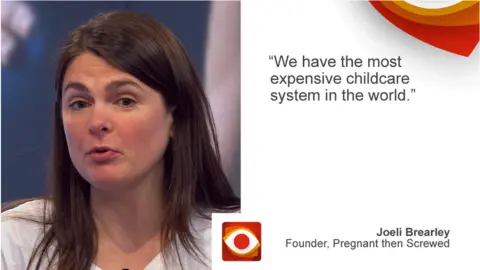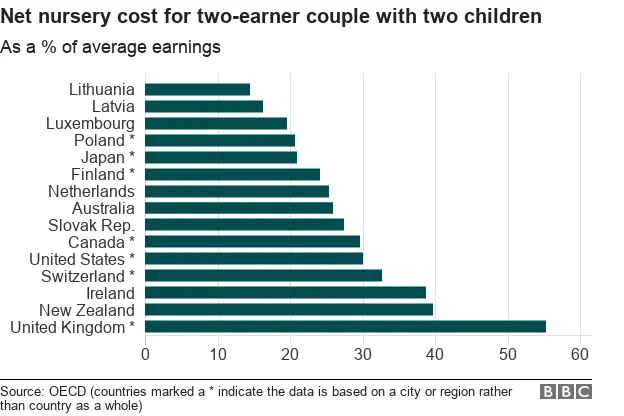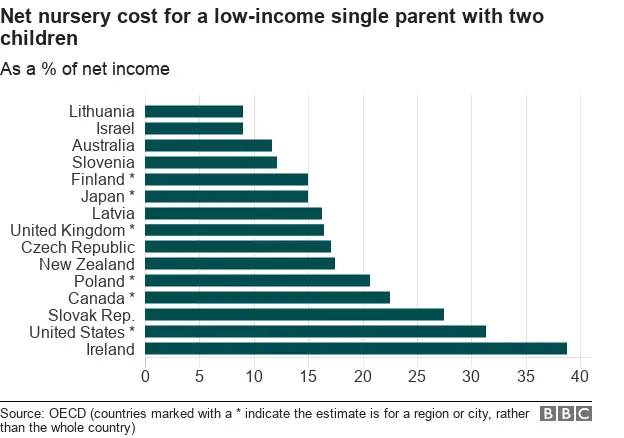Childcare: Do UK parents pay the most in the world?
 BBC
BBCThe claim: The cost of childcare in the UK is the highest in the world.
Reality Check verdict: Yes, according to the OECD, but only when the cost of childcare is applied to a specific demographic - in this case, a relatively well-off couple.
The claim that the UK has the highest childcare costs in the world was made by campaigner Joeli Brearley.
Ms Brearley was referencing a study carried out by an international economic body, the OECD, which provides a snapshot of childcare costs among its 35 members.
One important thing to note is that even though the OECD refers to the United Kingdom, its study only looks at childcare costs in England.
That's because the other nations have different childcare policies and the OECD has not produced separate findings for Scotland, Wales and Northern Ireland.
That aside, what does the data reveal?

The graph shows what it would cost to send two children (aged two and three) to a "typical" childcare centre (or nursery) for at least 40 hours each week.
It assumes both parents are in full-time employment, where one parent earns an average wage and the second parent earns 67% of average earnings.
The study also takes into account any financial support provided by governments, such as child benefit, to help towards childcare costs.
On this measure, the UK (England) is clearly way out in front with the net cost of childcare working out at 55% of average earnings.
This is 15 percentage points higher than New Zealand, the next most expensive country.
 Getty Images
Getty ImagesHowever...
But before drawing any firm conclusions, there are some important points to consider.
Firstly, the data needs to be understood in the context of who is affected.
In this example - which the claim is based on - we're looking at a relatively well-off couple.
Parents on lower incomes in England may be eligible for additional support, which will reduce their childcare costs.
Mike Brewer, an economics professor from the University of Essex, says that the childcare element of the working tax credit (which is being replaced by universal credit) is heavily means-tested and "very generous to low-paid families" relative to other countries.
Under the childcare element of universal credit, parents in the UK can receive up to 85% of childcare costs.
So with that in mind, what happens if the same analysis is carried out but this time it's applied to a single parent earning half the average wage?

When taking this particular snapshot, England falls from being the most expensive OECD country for childcare down to eighth.
As Prof Brewer observes: "The results in England depend heavily on what sort of family you have in mind, especially when it comes to their earnings, given that we means-test some support."
There are some other important caveats to consider.
For one, the study only looks at nursery as a childcare option and not other forms, like childminders or nannies.
In the UK, nurseries tend to be viewed as a premium product and more expensive than childminders.
Furthermore, the data was compiled back in 2015 and doesn't reflect recent changes in childcare costs or new government policy.
Since September, most working parents in England have been entitled to receive 30 hours of free childcare a week for three and four-year-olds.
The Department for Education says that 202,783 children in England benefited from the policy and that families could save £5,000 per year on childcare costs.


